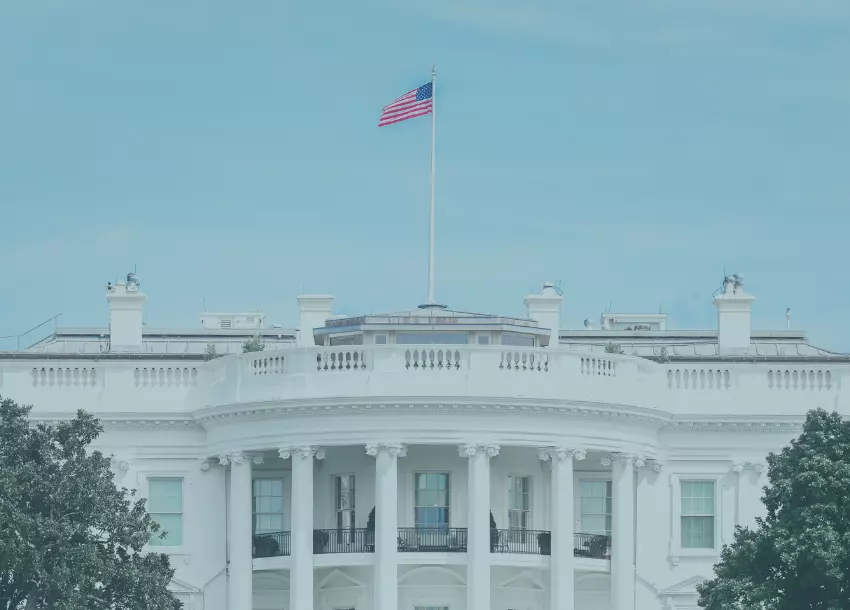The Future of DHEC is No Longer Pending
In September 2021, Nexsen Pruet[1] published an article titled “The Future of DHEC Still Pending at the General Assembly?” Now two years later, S. 399—a bill that would split and splinter South Carolina’s largest state agency (the Department of Health and Environmental Control (“DHEC”))—has been signed into law by Governor McMaster as Act 60. This article provides a brief overview of the newly enacted legislation, including activities that must occur prior to the effective date of the law next year, and summarizes the programmatic changes ahead.
More specifically, the existing DHEC agency will be abolished and its primary responsibilities of public health and environmental services will be transferred into two newly created state agencies: the Department of Public Health, which will assume most of the public health-related services, and the Department of Environmental Services, which will assume nearly all environmental-related services. The use of “most” and “nearly all” is because there are a handful of existing DHEC responsibilities that will be transferred to other existing state agencies, such as the Department of Natural Resources (“DNR”) and the Veterans Administration (“VA”). As was explained to the public during the June 8, 2023 meeting of the DHEC Board, the primary goal of this restructuring is to distribute across two separate agencies the many responsibilities that today are borne by DHEC in order to better serve the citizens of South Carolina.
The Department of Administration (“DOA”) has been directed to analyze and determine the best manner to restructure and transfer all DHEC programs. DOA must submit a report with specific recommendations of statutory changes to the General Assembly by December 31, 2023.
DOA must then engage independent, third-party experts, consultants, or advisors to analyze the missions and delivery models of all state agencies concerned with public health in order to recommend changes to improve health services delivery in South Carolina. DOA must periodically submit interim reports summarizing the analysis and recommendations to the General Assembly and the Governor—the first being due by October 1, 2023, then by January 1, 2024, with a final report due by April 1, 2024.
Finally, other than the aforementioned studies, this law takes effect on July 1, 2024.
Highlights of Act 60 include the following:
Creation of the Department of Public Health (“DPH”)
- Governor appoints Director with the advice and consent of the Senate; provided, however, until the Governor appoints the initial director after creation of DPH, the Director of DHEC shall serve as the Director of DPH.
- DPH may make, adopt, promulgate and enforce reasonable rules and regulations requiring and providing for:
(1) the thorough sanitation and disinfection of all passenger cars, sleeping cars, steamboats, and other vehicles of transportation in this State and all convict camps, penitentiaries, jails, hotels, schools, and other places used by or open to the public;
(2) the sanitation of hotels, restaurants, cafes, drugstores, hot dog and hamburger stands, and all other places or establishments providing eating or drinking facilities and all other places known as private nursing homes or places of similar nature, operated for gain or profit;
(3) the safety and sanitation in the harvesting, storing, processing, handling and transportation of mollusks, fin fish, and crustaceans;
(4) the safety, safe operation and sanitation of public swimming pools and other public bathing places, construction, tourist and trailer camps, and fairs;
(5) the care, segregation, and isolation of persons having or suspected of having any communicable, contagious, or infectious disease; and
(6) the thorough investigation and study of the causes of all diseases, epidemic and otherwise, in this State, the means for the prevention of contagious disease and the publication and distribution of such information as may contribute to the preservation of the public health and the prevention of disease.
- DPH may make separate orders and rules to meet any emergency not provided for by general rules and regulations, for the purpose of suppressing nuisances dangerous to the public health and communicable, contagious, and infectious diseases and other danger to the public life and health.
Creation of the Department of Environmental Services (“DES”)
- Governor appoints Director with the advice and consent of the Senate; provided, however, until the Governor appoints the initial director after creation of DES, the Director of DHEC shall serve as the Director of DES.
- DES is comprised of:
(1) the Division of Air Quality;
(2) the Division of Land and Waste Management;
(3) the Division of Water;
(4) the Division of Regional and Laboratory Services, which includes the Office of Emergency Response and the Office of Onsite Wastewater and Enforcement; and
(5) the Division of Coastal Management.
- DES is vested with all the functions, powers, and duties of the environmental divisions, offices, and programs of the Department of Health and Environmental Control on the effective date of this act.
- DES may make, adopt, promulgate, and enforce reasonable rules and regulations from time to time requiring and providing for:
(1) the classification of waters;
(2) the control of disease-bearing insects, including the impounding of waters;
(3) the control of industrial plants, including the protection of workers from fumes, gases, and dust, whether obnoxious or toxic;
(4) the use of water in air humidifiers;
(5) the regulation of the methods of disposition of garbage or sewage and any like refuse matter in or near any village, town, or city of the State, incorporated or unincorporated, and to abate obnoxious and offensive odors caused or produced by septic tank toilets by prosecution, injunction, or otherwise; and
(6) the alteration of safety glazing material standards and the defining of additional structural locations as hazardous areas, and for notice and hearing procedures by which to effect these changes.
- DES may make separate orders and rules to meet any emergency not provided for by general rules and regulations, for the purpose of suppressing nuisances dangerous to the environment.
Act 60 abolishes:
- South Carolina Department of Health and Environmental Control, and
- South Carolina Board of Health and Environmental Control.
Act 60 transfers:
- The food safety program in the Division of Food and Lead Risk Assessment and the Milk and Dairy Lab of DHEC to the Department of Agriculture.
- The authority to establish, manage, and operate veterans homes to the Department of Veterans’ Affairs, and all powers and duties assigned to the Department of Mental Health regarding veterans homes is transferred to the Department of Veterans’ Affairs.
- The hydrology and aquatic nuisance species programs of the Land, Water and Conservation Division of the DNR to the DES.
[1] As of April 1, 2023, Nexsen Pruet merged with Maynard Cooper & Gale and now operates as one national law firm called Maynard Nexsen.
About Maynard Nexsen
Maynard Nexsen is a full-service law firm of 600+ attorneys in 31 locations from coast to coast across the United States. Maynard Nexsen formed in 2023 when two successful, client-centered firms combined to form a powerful national team. Maynard Nexsen’s list of clients spans a wide range of industry sectors and includes both public and private companies.







